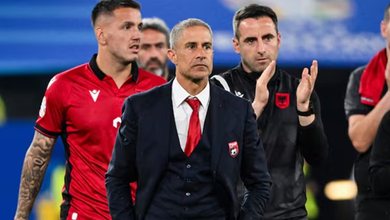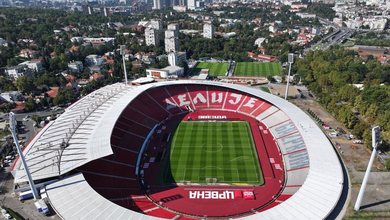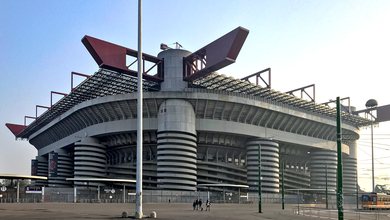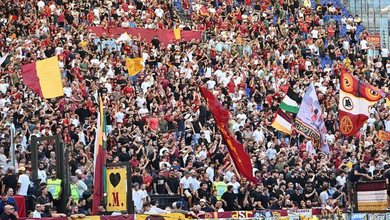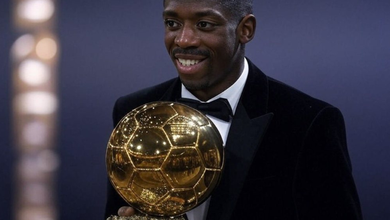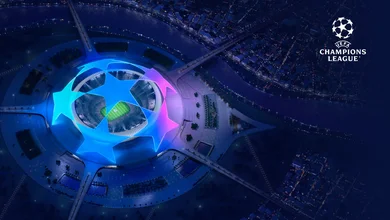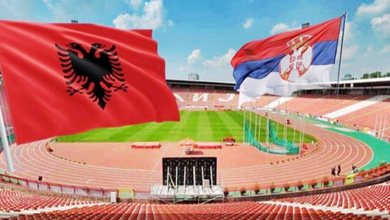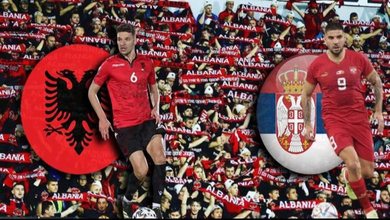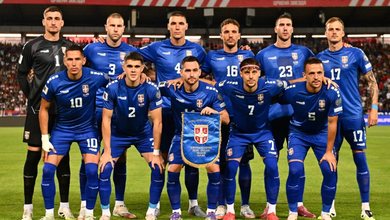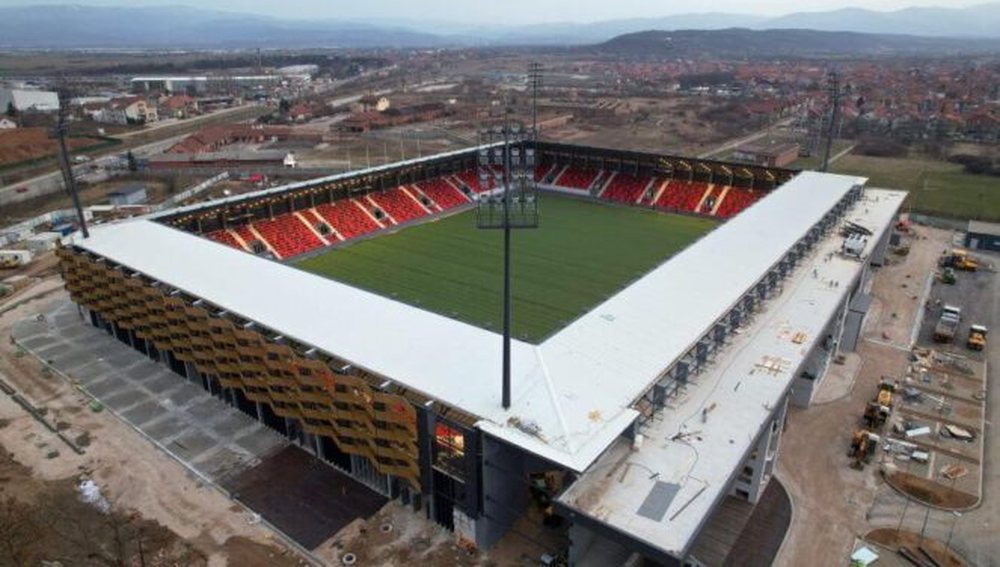
When the national teams of Serbia and Albania face off in a World Cup qualifier this Saturday, hundreds of police officers will secure the stadium, including snipers, civilian officers and drone experts.
The match will not take place in the Serbian capital, but in the small town of Leskovac, where the stadium has a capacity of only 8,100 spectators.
The section for Albanian fans will be missing, as tickets were not on sale for free. Local organizers and UEFA want to avoid a repeat of the scandal of October 2014.
At that time, Serbia and Albania faced off in a European Championship qualifier. Before the match, Serbian fans threw stones at the Albanian team bus, while protests and boos drowned out the Albanian anthem.
"Kill the Albanians," Serbian fans chanted when, in the 42nd minute, a drone with a flag flew over the field.
It represented the vision of a “Greater Albania,” as some Albanian nationalists dream of. On the field, Serbian defender Stefan Mitrovic grabbed the flag, and immediately Albanian players ran towards it. After that, fights broke out on and off the field.
The match was interrupted, but its aftermath continued: in the Kosovo capital, Pristina, hundreds of fans celebrated the match with car convoys and fireworks. In the border areas between Serbia and Kosovo, flags of both countries were burned.
Even in the diaspora — in Vienna and Berlin — there were clashes between people of Serbian and Albanian origin. Meanwhile, the planned visit of Albanian Prime Minister Edi Rama to Belgrade was postponed.
A conflict that never ended
Since then, the match between Serbia and Albania has been considered one of the most heated and sensitive matches in world football. Fans from both sides continue a conflict that has centuries-old roots on the pitch.
At the center of the conflict is Kosovo, home to an ethnic Albanian majority. Since the days of the former Yugoslavia, Kosovars have felt marginalized. In the late 1990s, Serbian politician Slobodan Milosevic started a war in Kosovo. Even today, Serbia does not recognize Kosovo as an independent state, although it declared independence in 2008.
Serbian fans express their nationalism in various ways. Crvena Zvezda (Red Star Belgrade) ultras often travel to Gracanica, a Serb-majority enclave in Kosovo.
There, near an Orthodox monastery, they wave the flag of “Greater Serbia” and pose next to a statue of Miloš Obilić — the Serbian knight who, according to legend, killed an Ottoman sultan in the 14th century. Belgrade fans see themselves as defenders of Christian Europe against “Islamic invaders,” meaning Albanians.
Albanian fans also react in their own way. For many of them, there is only one nation — the Albanian one. According to this concept, the Albanian nation also includes the territories where Albanian minorities live: in Serbia, Montenegro, North Macedonia and Greece.
At local league matches, they often sing songs about fighters from the KLA, the “Kosovo Liberation Army,” which attacked Serbian targets in the mid-1990s.
This atmosphere of tension is also reflected on the biggest stage of football. After a group stage match at the Euro 2024 Championship in Hamburg against Croatia, Albanian national team player Mirlind Daku picked up a megaphone and addressed the fans: “Fuck Serbia.”
Daku was suspended for two matches. On the other hand, the Serbian Football Federation was fined in December 2024 after Serbian fans attempted to burn an Albanian flag during a match against Switzerland.
Test for the atmosphere before the European Championship
In this context, football federations consider it a success that the first match between Albania and Serbia in the World Cup qualifiers (0:0) took place without incident.
For the match played in Tirana in early June, the Albanian Football Federation did not sell tickets to fan groups. Instead, ticket prices were increased and selection was made by lottery from over 200,000 applications.
Many Albanian ultras protested and watched the match in a square with public broadcasting. They also unfurled a banner addressed to the federation: “Take away our tickets and bring us the police, but you can’t kill the heart that beats for Albania.”
Is it possible for a quick calm to come?
In February, UEFA announced that the 2027 European Under-21 Championship will be held in Serbia and Albania — with the opening match in Novi Sad and the final in Tirana.
This initiative was pushed forward primarily by businessman and president of the Albanian Football Federation, Armand Duka, who since 2019 has been a member of UEFA's Executive Committee, its highest decision-making body.
Sports officials and diplomats from both countries see this tournament as a signal of rapprochement and as a contribution to the "Open Balkan" economic initiative.
But nationalist fan groups have strongly opposed it. Members of an Albanian fan association sprayed the federation's headquarters with red paint and published historical photos of Serbian atrocities during the war in Kosovo, accompanied by the message:
"We reject any collaboration with the killers."
Whether the 2027 European Championship will indeed be held in both countries will also depend heavily on political relations between Serbia and Albania.
The return match in the World Cup qualifiers, which takes place this Saturday, will be a crucial test for this relationship.
NeueZuercherZeitung


